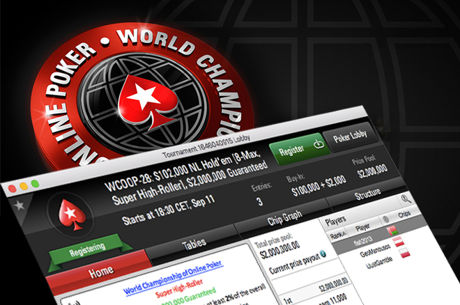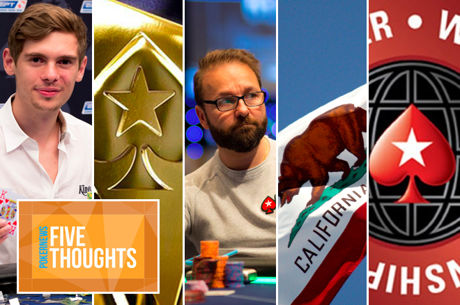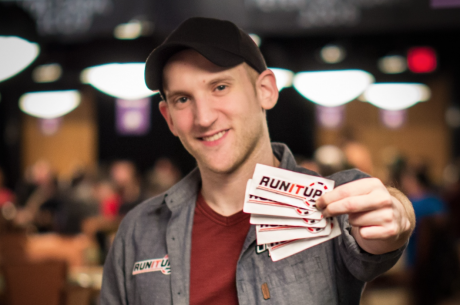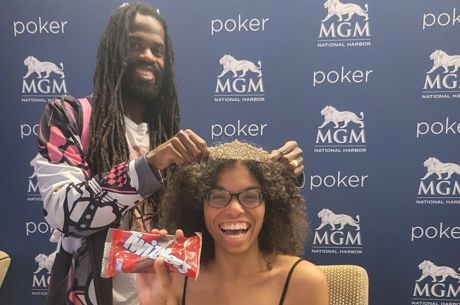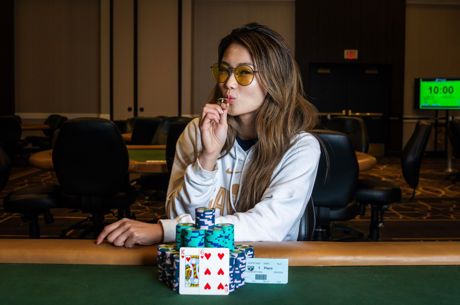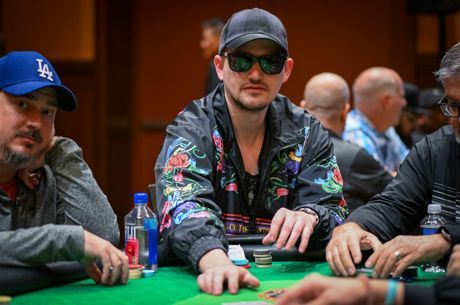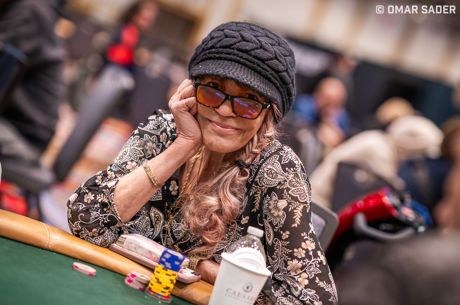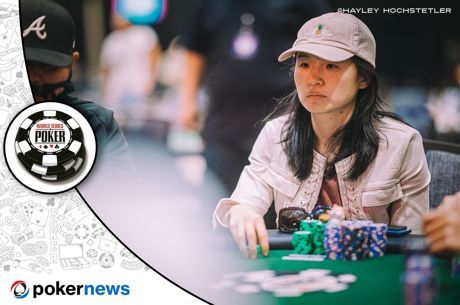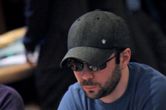Daniel Negreanu Tells All: "I Don't Care How I Do At the World Series Financially"
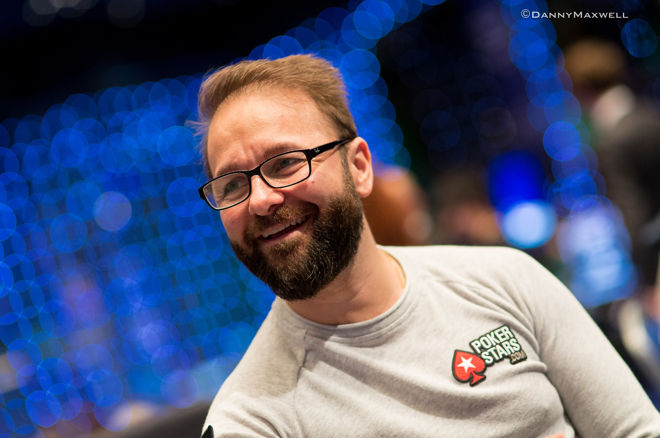
He's the number one on the all-time money list, leads the Hendonmob's popularity ranking and has a documentary on his life on Netflix. He's the most prolific sponsored poker pro around and has an opinion on just about anything. He recently started a podcast and began writing blogs again on his adventures at the live cash game tables in Vegas where he played $4,000/$8,000 with the likes of Phil Ivey, Patrik Antonius and Gus Hansen.
How many more reasons do we need to talk to Daniel Negreanu? We sat down with the Team PokerStars Pro in Barcelona and talked about his newfound love for live games, the state of poker and much more.
I read your blog post on playing cash with Ivey and Hansen and I loved it! What got you back in the game?
You know, I missed it. There are a couple key reasons I started playing again.
At the World Series of Poker, I noticed there were a lot of really good players; they had gotten better at mixed games. I realized if I'm not practicing, I'm staying behind. I pride myself on being really good at mixed games, but the truth is, if I'm not practicing against the best players in the world on a regular basis, I lose a little bit of an edge. I want to do well at the World Series in those events, so I have to practice.
Plus, it's really just fun. I remember playing these 30-and-40-hour sessions with Gus and Phil and Patrik and all those guys when I was young. It's just fun to get back into it.
I started off really on fire. I was up like $400,000 the first hour. I'm stuck at like $250,000 now for the year, after about a 100 hours of play. It's a pretty swingy game. It sounds bad and may sound like a lot of money, but it's really not. When you're playing $1,500/$3,000, losing $250,000 is not that hard. I'm comfortable; I'm making mistakes here and there, but overall I'm enjoying it.
You read the blog about the game back in San Diego of me Gus and Phil, right? Playing with Gus is, for a lot of reasons, a lot of fun. Jason Mercier mentioned it on a podcast as well. Not because we think he's good value or whatever; he's just a fun guy. He's got good energy. He's what poker misses today. He's just fun.
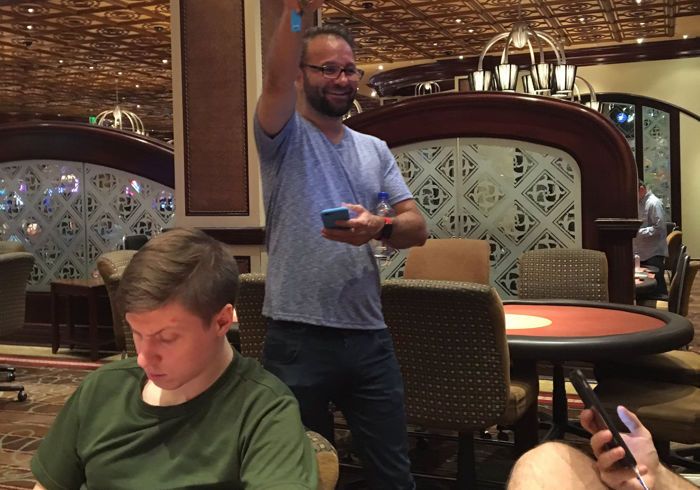
How come, after all these years, it's the same lineup playing?
They're not the only ones in the game; it just so happened that one of the days they were all there, I wrote about it.
There's definitely a ton of other players playing. There are guys that just emerged because they never stopped playing. Guys like Ray Dehkharghani and David Oppenheim, they're some of the best. And you have Nick Schulman and you've got Michael Thuritz, who's really honed his game online.
The truth is, there's still some younger players that really aren't very good. They might think they are, but they're not. I'm just convinced.
Are they good online and didn't transition well into live or do you think these guys are generally not that good?
When I played them - and it's been a while since I played the $400/$800 mixed games online - I won almost every session I played. I thought the younger players really didn't play the stud games that well. That's a very big weakness for them. They do well in the other games because they're really in tune with that, but the stud games, not so much. It takes a bit longer to adjust and to understand what's going on in those games.
On top of the regular action, there's a ton of money changing hands in props. What's that all about?
They sucked me in. Phil was playing with Doyle [Brunson] and Patrik and John [Hennigan]. They were playing four-handed and I wasn't so sure if I wanted in because the more handed you play, the bigger it gets. If you play heads-up props, it's a big game, but manageable. If you play four-and-five-handed, it's massive! Doyle hit a prop - one prop! - and it was worth $240,000. On a prop! Phil, get me in.
The poker is all I care about...I lost a lot in that first session - $436,000 - that's pretty big. I find playing props makes me focused more. I'm paying attention to every hand because I'm looking at every flop. I'm not on my phone or anything like that because if you miss a prop and don't announce it, you don't get anything.
Does playing props affect how someone plays? I imagine sometimes you don't want to see a flop because of some of the props, so that changes things, right?
You know what, absolutely. That's the dangerous part. That's where I probably give up an edge a little. Because I don't know all these things in certain spots, while Phil is on it, for example.
Let's say you're on for triples, which is a big deal, and let's say you have hearts. Now you have ace-king of hearts; you might actually be better off, A, going all in and hope everybody folds, or B, fold the hand and don't see a flop. It makes sense; sometimes the props are way bigger than the hand.
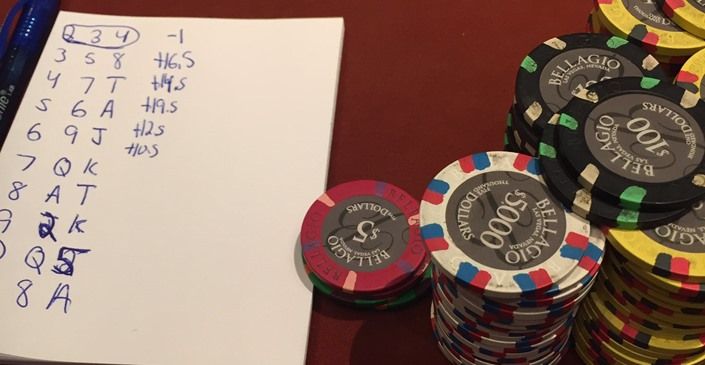
Those games sound pretty big.
To be honest, the game seems so small to me now and I'll tell you why. In 2002 and 2003, before the poker boom, I was a cash game grinder and I was playing $4,000/$8,000 or $1,000/$2,000 no-limit with a $100,000 cap. It was just about getting the money in there. I played really high back then.
$1,500 and $3,000, what we play now, really isn't that big. It's not so big it destroys the game. It's actually a limit where people lose $80,000 or $100,000 a session. It's not outlandish. I feel very comfortable. The financial pressure bothered me before maybe a little bit, but now not at all. If I lost a million in the game, I'm not gonna be like 'Wow that sucks.' It's just whatever.
You're playing these huge games to practice for tournaments at the World Series where first is often smaller than wins and losses in a session. Are you solely in it for the prestige and fun these days?
I don't even look at the money at the World Series. The best approach is to play the no-limit tournaments with the big fields if you want to win a lot of money. But I don't care. I play the $10,000 mixed games events with the smaller fields because I'm looking to win 'Player of the Year,' bracelets and stuff like that.
I don't care how I do at the World Series financially. It's how do I do results-wise. If I would win two bracelets and was still down money over the summer, I'd look at it as a win. If I win two $1,500s that pay $150,000 each, and then go off for three bullets in the One Drop for $300,000 total, I still feel like a winner.
You're No. 1 on just about everything over on the Hendonmob, except for the GPI. Is that something you're after?
The Global Poker Index one is difficult. The way that it's structured, and I'm not complaining, is tough to win.
I play most of my tournaments at the World Series of Poker so it's very difficult for me to ever be in the Top 10 of the GPI unless I had like a crazy World Series. I don't play enough in the second half; I play Barcelona and maybe the WPT in December. That's not enough tournaments.
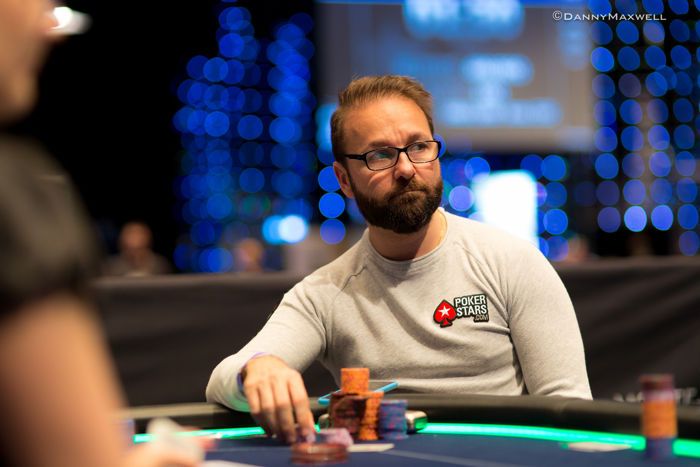
If the Big One for One Drop Extravaganza in Monte Carlo attracts a really huge field; your No. 1 spot on the all-time money list could be taken by a rich amateur. It's not likely to happen, but it could. What are your thoughts on this private event?
You know, I think a lot of poker players have entitlement issues. I really do.
First of all, if you want to run a tournament and give money to charity and you say, 'I'm going to invite these 30 people,' what say do I have? It's your event. You're raising the money! Pros don't have a leg to stand on.
The reason Guy is doing this is that he has a lot of recreational players and they don't want to play against a bunch of pros. They're donating money to charity. They don't necessarily want to donate to pros. I have no problem with it.
It shouldn't be for a bracelet; that's for sure. You can't pick like 30 guys and make it a bracelet event; I would be against that.
Basically, if Guy wants to let someone play, he can let them play. It's that simple. People are like 'Well, are you gonna let Talal [Shakerchi] play? Do you consider him an amateur?' But really, it's up to Guy. It's as simple as that.
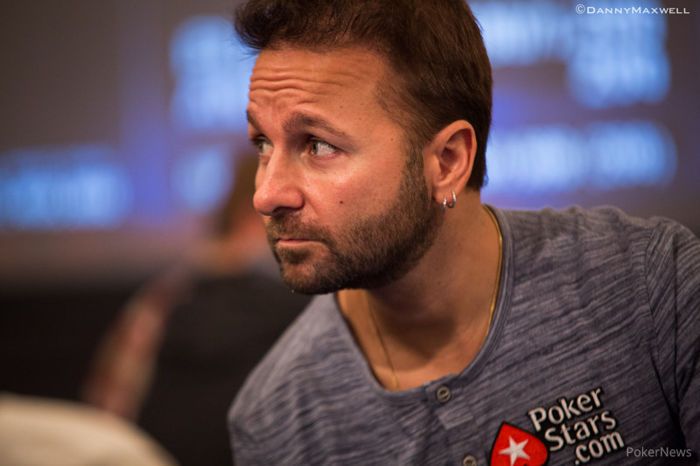
The big WCOOP $102,000 Super High Roller is coming up. Do you plan to play?
I'm actually looking into playing. I don't have a plan to be in Toronto, but I might fly in for that. I think it'll be fun.
I think it's a little nuts to have it as a reentry, though, to be honest. I don't know; it's a little high for online. They had it at $50,000 and I'm not sure why we doubled it, especially with the reentry. It seems a little out there. It will create a buzz; that's for sure. I don't know what the field will be like, maybe 30, 40 players or so?
I've been talking to some pros and they're a little weary of the event. I have this theory that high stakes online has done more harm than good. A lot of people will disagree with me and think I'm nuts for it, but others that understand business will agree with me.
Back in the old days, partypoker's biggest game was $15/$30 limit hold 'em. PokerStars had $15/$30 as well and then they offered $30/$60 and occasionally on a Sunday night there was a $100/$200 game. We all thought that was crazy already.
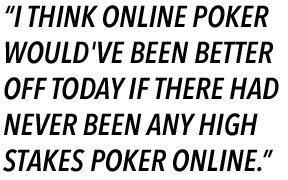
I think online poker would've been better off today if there had never been any high stakes poker online. It attracts really smart people that are looking to make millions. They are using tracking software; they're going to create bots. Any time there's a lot of money to be made somewhere, you attract that. If you leave the game fun, if you leave it low limit, those people don't have the incentive to do that.
The exposed bot rings were playing $0.50/$1 and $1/2. They were able to make a lot of money creating as many accounts as they wanted and grinding long hours.
Obviously, bots at all levels are a problem.
Back in the days, when I was playing live, I would never play a $1,000/$2,000 game against two random guys I didn't even know. Online, it became the norm, but realistically, it created a really predatory nature.
One guy, who isn't very good, sits in a game, and because of seat scripting software, the table fills up instantly. As the guy quits, they all instantly sit out. We opened that up.
Full Tilt, and a lot of the people that I knew who ran the site agreed, made a huge mistake. They thought it would bring in players, and it did, but look what it did with someone like Guy. He lost 28 million. If the limits weren't that high, he would still be playing online. If he lost a million, it wouldn't be as embarrassing.
The games just got out of hand in terms of size and I'm not saddened by the fact [they are disappearing]. It's just inevitable that high stakes online is dwindling.
You put too much money out there and you're gonna find people that are going to try to corrupt the system in some way. And I don't think from a revenue perspective, it was worth it.
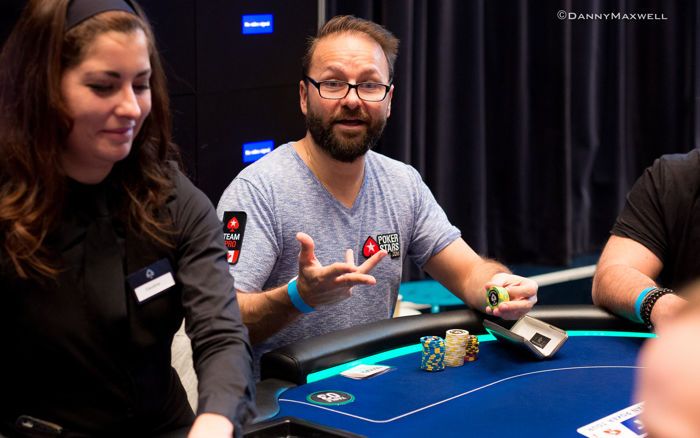
Something completely different: A documentary on your life is out on Netflix. How did 'KidPoker' come to be?
Francine Watson [director and producer for the movie] and the team do these 10-minute videos for PokerStars. They did one with Nanoko and others. They said 'Let's do a 12-minute video with you.'
They had so much footage [that] by the end of it, they said 'Fuck it, let's make a feature film out of it!' Once they spoke to my brother, it changed the direction of the entire film because he filled in a lot of the blanks from my family life. I was impressed by him because usually he's not that well-spoken, but he did such a great job.
I've heard from so many poker players, who watched it with their girlfriend or someone else who doesn't like poker at all, that they liked it. They enjoy it because it's not about poker. It's a story about family, a story about failure turning into success and a story about perseverance.
She did an amazing job making it mainstream. Netflix, who would never touch poker, said, 'We'll take it because it's not poker.'

There��s a photo of a television crew filming a different television crew in your house. What��s that about?
I was actually shooting a scene for a documentary that James Cameron is filming. The Dutch guys [a different television crew than the KidPoker makers] were filming them filming me. So two crews in the same house. Kind of crazy, yeah.
James Cameron, who directed Titanic, is filming a documentary about the misconception about what veganism is. In this documentary, you have the strongest man in the world (who's a vegan) you have a UFC champion (vegan) and the arm wrestling champion of the world (vegan). They are just doing a lot of interviews to show people it's actually bullshit that you need meat.
You now have a podcast out. Where did that idea come from?
I started to listen to podcasts right before the World Series. I was really getting into it, while before I never had really understood the genre.
I looked at what was out there. You have EPT Not Live which is great, twoplustwo has one and Joey Ingram, of course. I thought, 'What can I add?' I wanted to do something unique and different. My plan is to interview powerful people in the industry and give people a glimpse of the inner workings.
Brian Balsbaugh was the first. I thought it would be interesting to talk about what poker sponsorship was like during the poker boom. He hired interns and was literally signing people at the parking lot. He tells the story of them finding pictures of guys online and walking around before the start with a printout to offer people a deal.
For a lot of people, especially those who weren't around at the time, that was really interesting.
There's guys like [Poker PROductions producer] Mori Eskandani, [WSOP tournament director] Jack Effel and [WPT CEO] Adam Pliska I want to talk to. I think I have access to some people that maybe not everyone does.
It's for the pro community a little bit, but there will also be some interesting stories from the past for everyone.
I want to have that Phil Ivey guy on there; I'm going to force him to do it. Phil doesn't do a lot of interviews but I know some stuff. People that interview Phil go on what they know. I know more. He's my friend, so I think I can get some real good stuff out of him.
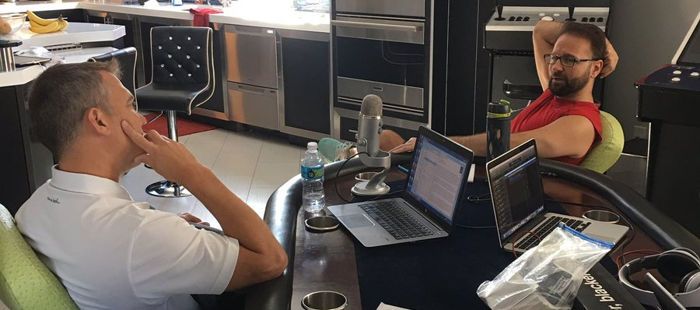
One of the biggest stories related to the inner workings of the poker industry has been the changes PokerStars implemented. You said there was a lot of stuff on the horizon that would change a lot for everyone, but you couldn't talk about it yet. What were you referring to?
So this has been annoying. It's a little tilting because I've been hearing people talk about me saying these changes were coming, but I never said that.
I was very clear to say, 'I've heard of some promotions, and if they happen, they will blow your mind. I don't know if they will, but if they do, they will blow your mind.' But I didn't promise anything that didn't get delivered.
But isn't it the expectations people had that matters?
Well, I had expectations too. But we had some things to go on throughout the year that changed direction. Obviously, David Baazov stepping away as CEO played a large role.
I don't see them happening by the end of this year, but I do think there's a decent possibility in the next year or two we could see some of those things come to fruition.
The poker community, and this is very important to notice, is comparing what PokerStars offers today to what PokerStars offered before. And that's fair. But it's also fair to notice the industry as a whole is not expanding really. There's not a whole lot of people getting into it. I think it's fairer to compare PokerStars today to every other site that exists. And compared to every other site that exists, they offer a lot more.
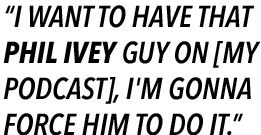
People had the gravy train for a very long time with the Super Nova Elite program. That was incredible. That's going to shift and change with the industry changing. They have to expect a publicly traded company has to do what's best for them in the long run. They're not going to say 'Let's make sure our pros' win rates are still good enough to make a living,' because the pros represent just a fraction of the total player base that they need to think of.
With fewer people entering the industry, what do you see as the future of poker?
The game of poker is in an amazing place right now. Live games are flourishing. The World Series of Poker has more games and players now then there have ever been. There are games all over the world; you have big games in Macau and medium-sized games all over Vegas and Europe.
Online poker, clearly in terms of cash games and higher stakes, is going to take a hit. It's going to continue to trend downwards. Obviously, some of the changes we made to no longer give bonus points to high-stakes players contribute to that as well, but there are other factors.
But in terms of the growth of poker, I see a lot of positive things. Twitch opened up poker to a whole new audience. And the Spin & Go's bring people in and it's fun. We have people here in Barcelona that won their package for $10! It's exactly what we need. I remember seeing so many new faces at the EPT Grand Final that had never played a live tournament before.
A lot of the steps they're making, and I've said this many, many times, are geared toward the masses rather than the few. For a lot of the years, part of what made PokerStars successful is how generous and how loyal they were to the player base. But that gravy train had to shift at some point. You can't continue to see year-after-year diminishing profits and not do anything about that, especially if you're a publicly traded company. It's actually illegal to do nothing. You can't just let your company continue to shrink without making major changes. Unfortunately for pro players, they're the ones who are going to take the biggest hit in that regard.
The company is called PokerStars; the premise that you could become a star and rise in stakes was what got people to play. That's getting tougher now.
It's tougher in specific areas. So cash games, yeah - way tougher. Tournaments, though, are still an opportunity for a lot of young players to build up a bankroll and thrive and play the EPTs and what not.
The dream is not dead; it's just a lot more difficult. And it has been no matter what we did. If you don't bring in new players by the thousands each year, there's no sustainability. It was inevitable; no matter the decisions we made, it was bound to happen. It's just the way poker always ends up.
If you play every day with 10 friends, eventually the three guys that suck are gonna stop. If you don't bring in three new guys, there's now seven pros. And you know what, two of the pros that were winning aren't anymore and then they quit. So now there's five of you and you look at each other and you're like, 'What the fuck are we doing here?' You need new players and PokerStars is catering to them.
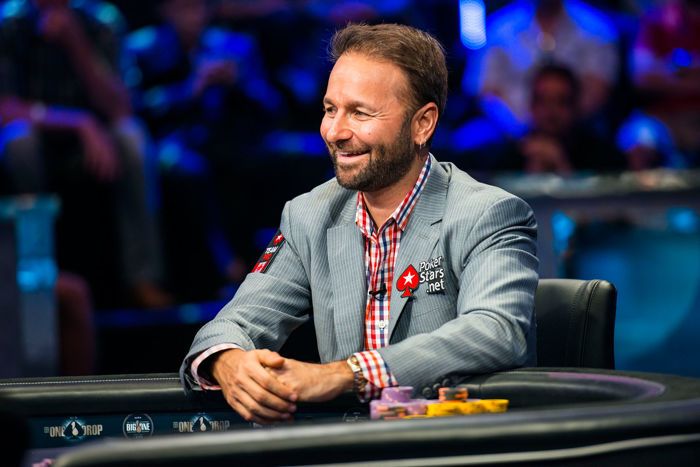
Be sure to complete your PokerNews experience by checking out an overview of our mobile and tablet apps here. Stay on top of the poker world from your phone with our mobile iOS and Android app, or fire up our iPad app on your tablet. You can also update your own chip counts from poker tournaments around the world with MyStack on both Android and iOS.

